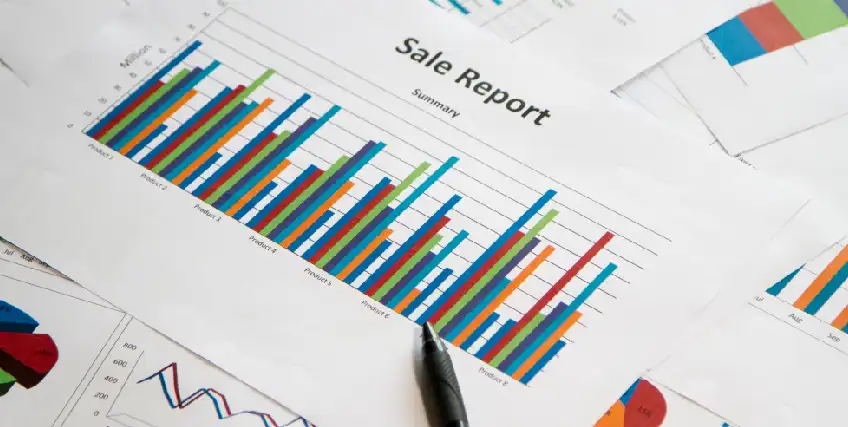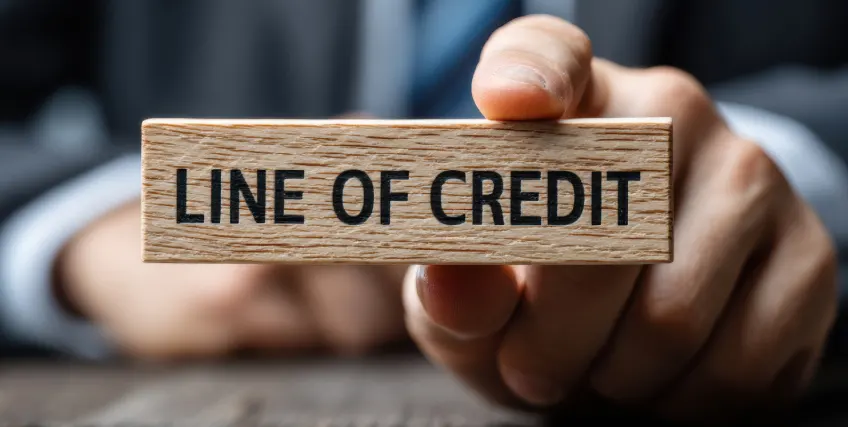What is the Difference Between Personal Credit and Business Credit?
March 10, 2025 | Last Updated on: March 10, 2025

Having good credit can unlock different financing opportunities to help grow your business. But to qualify for business loans or lines of credit, a lender will evaluate your credit risk to see if you’re a viable candidate.
That’s where your credit score can help or hurt your chances. A credit score is a simple tool for lenders to assess your creditworthiness. If you’re starting out or have a small business, lenders will likely review your personal credit score. Business owners can also establish a business credit score as well, but it takes some work. Personal and business credit scores are intertwined in some ways, however there are some major differences.
Article Summary:
- Personal credit and business credit provide lenders a snapshot of your creditworthiness.
- Your personal credit may be used by business credit card issuers or lenders if you don’t have business credit history.
- You can build your business credit history by getting an EIN, DUNS number, and making on-time payments.
Personal Credit vs. Business Credit
Both personal and business credit offer lenders a look into your credit history and how financially responsible you are with loan repayment. However, when comparing personal credit vs. business credit that’s one of the few things they have in common.
Here’s an overview of the primary differences between a personal credit score and business credit score.
| Personal credit score | Business credit score | |
|---|---|---|
| Who it’s for | Individual | Business |
| Identification number | Social Security Number (SSN) | Employer Identification Number (EIN) |
| Credit score range | 300 to 850 | 1 to 100 |
| Credit bureaus | Experian, Equifax, and TransUnion | Experian, Equifax, and Dun & Bradstreet |
| Credit report information affects score | Yes | Yes |
| Where to check report | AnnualCreditReport.com |
Experian, Equifax, and Dun & Bradstreet |
| Access | Private | Anyone can review your business credit score |
Individual vs. Business
A personal credit score is for individuals, whereas a business credit score is for businesses. However, there’s some nuance there. For example, if you’re a sole proprietor then your personal score is used as you technically are the business.
Even if you do have a different business structure such as a limited liability company (LLC), a lender may look at your personal credit to determine your eligibility, especially if you don’t have established business credit history.
Identification Number
Your personal credit score is linked to your Social Security Number, while a business credit score is linked to an Employer Identification Number.
Credit Score Ranges
One of the top differences between a personal credit score and a business credit score is the credit score range. FICO is the most popular credit scoring model and has a range of 300 to 850. Business credit reporting agencies have a different range, using 1 to 100.
Credit Bureaus
Consumer credit bureaus and business credit bureaus have some overlap, but some differences. There are also differences in where you can access your credit reports.
As a consumer, you’re eligible for a free credit report from Experian, Equifax, and TransUnion at AnnualCreditReport.com. Business credit reports come from Experian, Equifax, and Dun & Bradstreet. You can access your business credit report by contacting those credit agencies.
Access
One important thing to know is that your personal credit score is only available to you. On the other hand, business credit scores are public and not private and like a public credit score. They can be accessed by various entities who want to evaluate your business finances and repayment history.
How Personal and Business Credit Work
Your personal credit score can help you rent an apartment, open a credit card or access a personal line of credit, or apply for a mortgage or car loan. It offers lenders an indication of your ability to repay and manage debt. FICO uses five factors to determine your credit score and gives each factor a different weight:
- Payment history (35%). Whether you pay on time or not has the biggest weight. Lenders want reliable consumers with solid repayment history with little to no late payments.
- Amounts owed (30%). Credit utilization, or the amounts you owe compared to your credit limit, is another significant factor. Using more than 30% of your available credit can hurt your score.
- Length of credit history (15%). Lenders are looking for patterns and seeing that you have established and maintained a positive credit history over time can help.
- New credit (10%). Frequently applying for new types of credit can affect your score and be a red flag for lenders.
- Credit mix (10%). Your ability to manage different types of credit, such as installment loans and revolving credit can be a good sign for lenders.
Business credit bureaus look at different factors. How those factors are weighed vary by bureau. Experian looks at:
- Your credit accounts, credit utilization ratio, payment history, and outstanding balances.
- Any public records, such as bankruptcies or liens.
- Length of business history, size of business, sales, and more.
The information in your business credit report determines your business credit score. Personal and business credit scores show lenders your creditworthiness. Your personal credit can be used as an individual or reviewed as part of your business if you don’t have business credit.
To help you separate your personal credit from your business, you need to establish your business credit and keep up with payments.
How to Get and Build Business Credit
If you don’t have business credit yet, here are steps you can take to get started.
1. Get an Employer Identification Number (EIN)
If you haven’t done so already, get an Employer Identification Number or EIN. This is your tax ID number for your business, similar to your Social Security Number as an individual. Sign up for one through the Internal Revenue Service (IRS) at no cost and get an EIN quickly.
2. Create a Business Entity
One way to create more distance between you and your business is to create a separate business entity. Sole proprietorships make it difficult to untangle you from your business. Creating an LLC, partnership, or other business entity provides a distinction between you and your business.
3. Open a Business Bank Account
To help you establish business credit, you need to fully separate your personal finances and business finances. Make a clean transition and open a business bank account. Having a business checking account and savings account can help you pay for business expenses and make it easier to track everything.
4. Apply for a Business Credit Card
Getting a business credit card can help you establish a business credit history. However, to qualify your personal credit is typically used in the approval process. Once you get a business credit card, start using it for qualified business expenses.
Pay back your balance in full and make on-time payments. Doing so can have a positive impact on your business credit history if the business credit card issuers report the card activity. Before applying, compare the best credit cards for small business owners and look at APRs and any perks.
5. Request a Dun & Bradstreet D‑U‑N‑S® Number
Business credit bureau Dun & Bradstreet can help you start building your business credit through their Data Universal Numbering System or DUNS number. Getting a DUNS number doesn’t cost you anything and helps establish a credit file.
6. Obtain Credit or a Loan
You must show a responsible payment history over time to establish your business credit. You can look into trade credit from different suppliers or apply for small business loans. The key is to make sure that the vendors or lenders report your payments to the business credit bureaus.
Final Thoughts
Your personal credit score and business credit score are both reflections of financial health. While they are intertwined in some ways, they are different numbers from different entities. If you want to streamline your business and qualify for competitive insurance rates and loans from multiple providers, start building your business credit profile. It can legitimize your business and open up different financing opportunities.
FAQs About Business Credit
What is a Good Score for Business Credit?
Your business credit score can range from 1 to 100. What’s considered a good business credit score is typically 76 to 80 or higher depending on the credit bureau.
Can I Get a Credit Card with My LLC?
You can apply for a small business credit card with your LLC as your business structure. This will help you differentiate your business and is an alternative to getting a personal line of credit. To find the best business credit card, review the interest rates and potential benefits.
Is Business Credit Tied to Personal Credit?
Your business credit and personal credit are different scores. However, when getting a business credit card, the issuer may perform a hard inquiry on your personal credit, according to Capital One.
Can You Get a Business Line of Credit No Personal Guarantee?
If you apply for a business line of credit, you’re typically on the hook for outstanding balances and agree to a personal guarantee. If you want a business line of credit with no personal guarantee, you need to find a lender that offers this, and your business must have enough business history and revenue to qualify.
What Are Line of Credit Interest Rates?
Business line of credit interest rates vary by the lender as well as your credit history. Depending on your business, your personal credit may be used in the approval process and determining rates.




